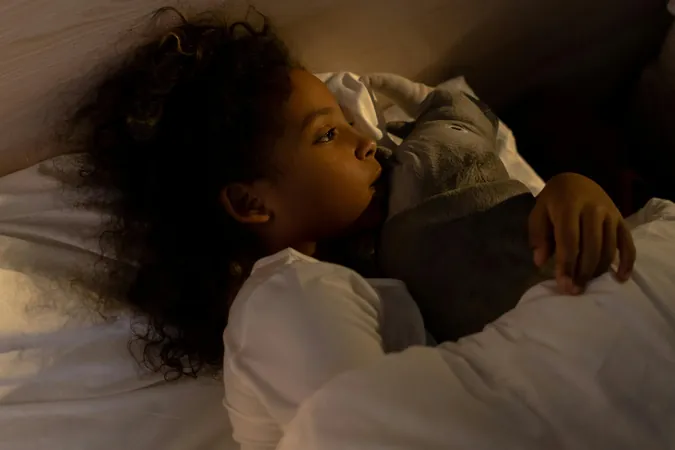
Breaking the Myth: Dance and Lullabies Not Hardwired in Human Nature!
2025-04-29
Author: Liam
Shocking Discovery in Human Behavior Research
For ages, we’ve believed that dance and lullabies are ingrained in human culture, something we all do instinctively. However, a groundbreaking study by anthropologists at the University of California, Davis, reveals that this might not be the case after all. This research challenges the conventional wisdom that these behaviors are universal among humans.
The Unexplored World of the Northern Aché
The study, published in *Current Biology*, explores the lives of the Northern Aché, an Indigenous group in Paraguay, drawing on an impressive 43 years of research. According to the lead researcher, Manvir Singh, Northern Aché adults engage in limited solo singing, primarily introduced through church activities. Disturbingly, there is no evidence of communal dancing or lullabies among them.
A Deep Dive into Cultural Practices
Anthropologist Kim Hill spent over a decade living with the Northern Aché, documenting their unique musical practices. He found that while men often sang solo about hunting or current affairs, and women focused on honoring deceased loved ones, the communal and soothing nature of lullabies was entirely absent.
The Lost Legacy of Dance and Lullabies
The researchers speculate that the Northern Aché may have lost these cultural practices during population declines or the transition to reservation life, which led to the disappearance of other traditional rituals as well. This suggests that dance and lullabies might not be deep-rooted in human nature but rather learned and culturally transmitted behaviors.
Cultural Transmission vs. Biological Instinct
Singh, who once championed the idea of universal lullabies and dance, was amazed by Hill’s findings. This research implies that while humans may have the capacity to engage in such practices, they are not instinctive. Instead, they require a social framework and a cultural environment to flourish.
What This Means for Our Understanding of Music and Dance
This study raises important questions about how we perceive music and movement in human evolution. The notion that dance and lullabies could be more akin to learned skills like fire-making—rather than biologically ingrained behaviors—might reshape future research in anthropology and musicology.
The conclusion? As researchers delve deeper into various cultures, we may find that many of our assumed 'universal' behaviors might not be as universal as we thought!









 Brasil (PT)
Brasil (PT)
 Canada (EN)
Canada (EN)
 Chile (ES)
Chile (ES)
 Česko (CS)
Česko (CS)
 대한민국 (KO)
대한민국 (KO)
 España (ES)
España (ES)
 France (FR)
France (FR)
 Hong Kong (EN)
Hong Kong (EN)
 Italia (IT)
Italia (IT)
 日本 (JA)
日本 (JA)
 Magyarország (HU)
Magyarország (HU)
 Norge (NO)
Norge (NO)
 Polska (PL)
Polska (PL)
 Schweiz (DE)
Schweiz (DE)
 Singapore (EN)
Singapore (EN)
 Sverige (SV)
Sverige (SV)
 Suomi (FI)
Suomi (FI)
 Türkiye (TR)
Türkiye (TR)
 الإمارات العربية المتحدة (AR)
الإمارات العربية المتحدة (AR)